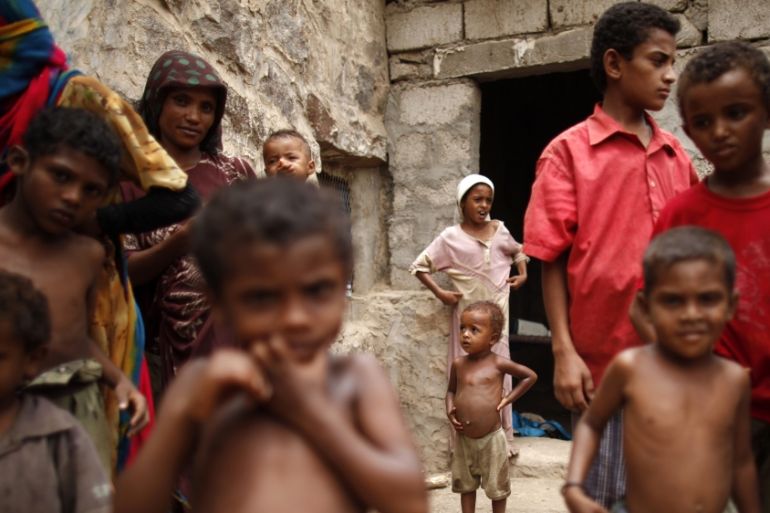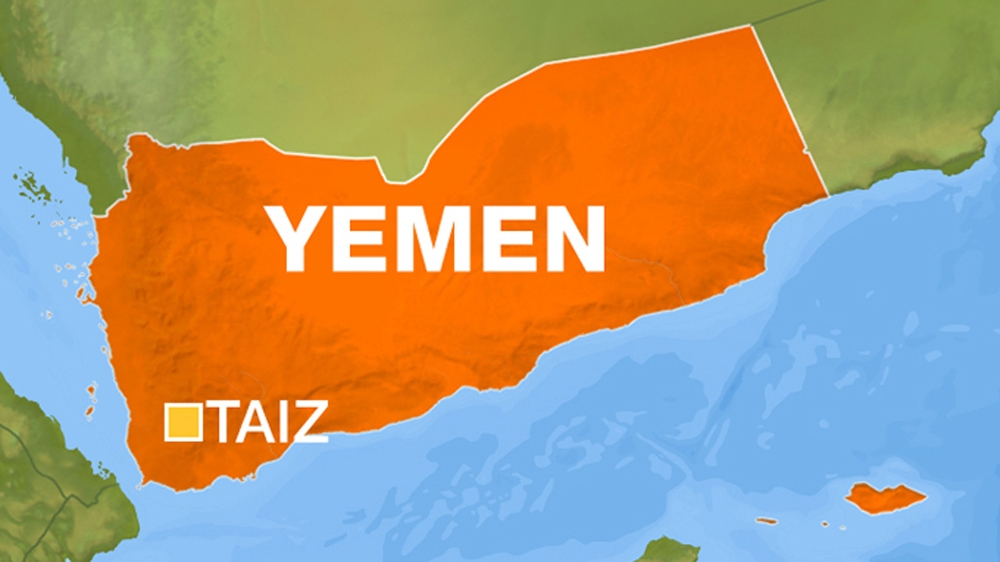UN delivers medicine to Yemen’s besieged Taiz city
WHO says eight tonnes of aid delivered for first time since onset of war to hospitals in country’s third-largest city.

Eight tonnes of medicine have been delivered to hospitals in government-held Taiz, Yemen’s third largest city under Houthi rebel siege, according to the UN health agency.
The World Health Organisation (WHO) said it was the first time since the conflict began that the UN negotiated access by direct route to Taiz city.
“The truck arrived in Taiz city yesterday. The medicines have been distributed to hospitals today,” Tarik Jasarevic, WHO spokesperson, told AFP news agency.
More than 350,000 people are in need of urgent medical aid in Taiz, he said.
The medical supplies included trauma kits, emergency medicine and pneumonia kits.
Jasarevic also said that previously the UN had only been able to get some medical supplies to Taiz via smaller, side roads in the Arabian Peninsula country.

The 23-month-long Houthi rebel siege of Taiz has caused shortages of food, water and medicines.
At least 37 of the city’s 40 hospitals and medical institutions have been forced to close, and the doctors and nurses brave enough to remain are forced to operate without essentials such oxygen – which doctors require to put patients under general anaesthesia.
During his latest visit to Yemen, Stephen O’Brien, the UN humanitarian affairs chief, discussed with Houthi leaders the question of aid entry into areas such as Taiz.
The meeting happened after he was stopped from delivering aid to the city, according to the UN News Centre.
READ MORE – Yemen’s war: ‘No one knows when he is going to die’
The latest UNICEF report says that more than 400,000 children were at risk of starvation in Yemen with nearly 2.2 million in need of urgent care.
The report mentions Taiz as one of the main governorates affected.
Yemen has been torn apart by conflict since 2014, when Houthi rebels, allied with troops loyal to former president Ali Abdullah Saleh, captured large expanses of the country, including the capital Sanaa.
A coalition of Arab countries assembled by Saudi Arabia launched an air campaign against the rebels in March 2015.
Seven ceasefire accords have failed to end the war, which has left more than 7,500 dead and 40,000 people wounded, according to UN tally.
|
|